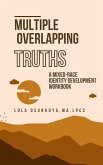Self-esteem can involve various beliefs about yourself, such as the appraisal of your appearance, thoughts, emotions, and behaviors.
Self-esteem can play a significant role in your motivation and success throughout your life. Low self-esteem may hold you back from succeeding at school or work because you don't believe yourself capable of success.
By contrast, healthy self-esteem can help you achieve because you navigate life with a positive, assertive attitude and believe you can accomplish your goals.
The multiple forms of self-esteem function how accurately or closely it matches an individual's measurable reality. It is composed of the objective outcome of one's behavior (actual achievements, measurable capabilities) and one's interpersonal interactions (i.e., the level of unity between how one thinks they are perceived and how they are perceived). Self-esteem also varies in terms of its level of stability, or the degree to which it is influenced by evaluative events or the need to match external standards across time and situation. The permutations of these sorting variables yield eight types of self-esteem: Optimal High, Fragile High, Accurate Low, Fragile Low, Non-compensatory Narcissism, Compensatory Narcissism, Pessimal, and Disorganized.
In this book, you will read:
The history of self-esteem
Self-esteem across the major theories
Understanding self-esteem
The self-esteem obsession
Developing a measure of self-esteem
And much more!
Scroll to the top of the page and click the "Buy Now" button to start today!
Dieser Download kann aus rechtlichen Gründen nur mit Rechnungsadresse in A, B, CY, CZ, D, DK, EW, E, FIN, F, GR, H, IRL, I, LT, L, LR, M, NL, PL, P, R, S, SLO, SK ausgeliefert werden.
Hinweis: Dieser Artikel kann nur an eine deutsche Lieferadresse ausgeliefert werden.









